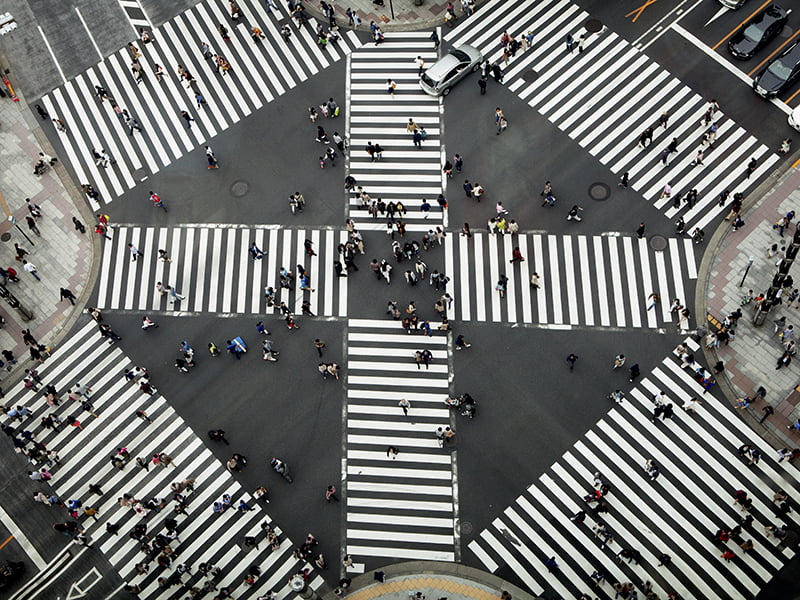The federal government is “assessing the role of technology” in combating the spread of COVID-19 but is not currently working directly with private developers on a contact tracing app.
Tech industry websites had previously reported that the Digital Transformation Agency was “collaborating” with the developers of the ImpactApp, which claims to use Bluetooth and GPS data to “track every interaction you have” and tell users when they have been in contact with someone with the virus.
In a LinkedIn post, the Australian developers of the app had said the DTA had been in contact with them and were collaborating on the app with a goal to release it in the coming days.
But InnovationAus understands the DTA is not actively working with any private developers on a contact tracing app and rejected the claim that it was collaborating on an app.

The LinkedIn post has now been changed to claim the developers are “collaborating” with the “federal government”, with a goal of launching sometime next week.
Blaque Fracture Technologies chief executive Nikolai Heaphy-Page, who is leading the work in ImpactApp, said the government had backed out of plans to collaborate on the project.
A number of countries around the world have launched contact tracing apps in some form, most utilising a phone’s Bluetooth to record their interactions with other users. These interactions are stored for a number of weeks, and users are notified if they have come into contact with someone who has been confirmed positive for COVID-19.
The Singapore government’s TraceTogether app has led the way, with the developers pledging to make the code open source so other governments can quickly create a localised version.
Last week the federal government fast-tracked a review of this app but it’s unclear whether this has been completed and what the results were of the review. According to a cryptography expert, the Singapore app could easily be adapted and made more secure to be used in Australia.
The UK government has also been given permission to access foreign phone data anonymously to track if people are following the country’s strict lockdown laws.
Prime Minister Scott Morrison said earlier this week the Australian government wouldn’t be going in this direction.
“We’re not going to go and cut paste measures from other places, which have completely different societies,” Mr Morrison said.
A spokesperson for the DTA said the government is “assessing the role of technology in dealing with the coronavirus pandemic on an ongoing basis”.
The developers of the ImpactApp said it will be a “community-driven application using anonymous Bluetooth and GPS data to track interactions with other devices, whether they have ImpactApp installed or not”.
It has been developed by three Australian SMEs and a team of five people, they said.
The DTA has worked with Canberra-based tech firm Delv to release an official government coronavirus information app, which was launched last weekend and has already been downloaded more than one million times.
This app does not have the capability for any sort of contact tracing, and it’s understood there are no plans to introduce that feature in the future.
While the code hasn’t been made open source yet, the Singapore tracking app is “not a good model for Australia”, but could be implemented here with a few small tweaks, cryptography export Vanessa Teague said.
The Singapore app allows users to collect the IDs of other users they have come into contact with through Bluetooth. If a user tests positive for COVID-19, an encrypted list of the IDs they have come into contact with over the last two weeks is sent to the government.
This is then decrypted and those who have been in close proximity to them are contacted and told to either monitor symptoms or get tested.
“My concern is that the Singaporean design puts a government authority right at the centre of the data transfer, so it does a pretty good job of protecting privacy against random strangers, but doesn’t do a good job of protecting privacy from the authority that gets the data,” Ms Teague told InnovationAus.
“That’s not a good model for Australia. That’s bad for reliability, and it’s a disaster for privacy. My concern is what other uses of that tremendously valuable contact or connection information there potentially might be.”
But the app could easily be adapted and tweaked to protect privacy, Ms Teague said.
If used in Australia, this process should be changed to better protect privacy and not use the federal government as the intermediary, Ms Teague said. This could be done through each user having a randomly-generated identification number that is broadcast to other users in Bluetooth range.
If the user tests positive for the virus, a list of the random ID numbers they have been in contact with is then published on a public website, and other users can check if they have been in contact with the confirmed case themselves.
“The idea is that rather than remembering the encrypted IDs that you have received and passing them onto the government, you send the information flow in the opposite direction,” she said.
“There’s no government intermediary for all these communications. Publishing the numbers doesn’t reveal to any third parties who you have been in contact with, but people who’ve seen those numbers can figure it out.”
Do you know more? Contact James Riley via Email.

